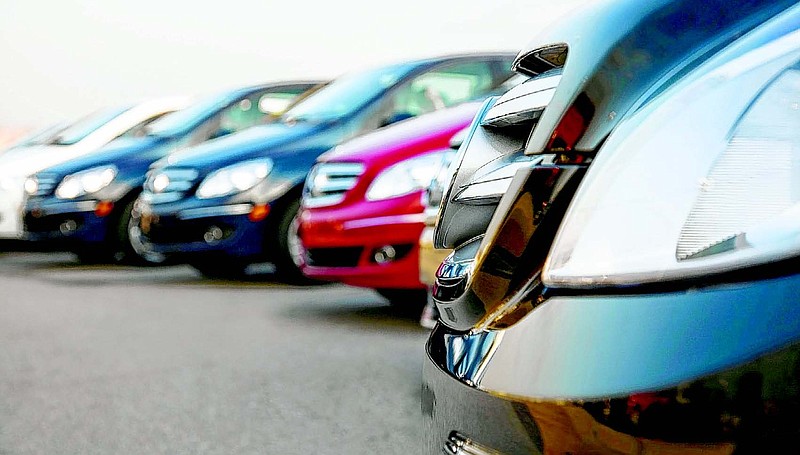Easier credit, hot new cars and falling gas prices kept Americans buying vehicles at a strong pace in May despite bad economic news.
May sales totaled 1.3 million cars and trucks, up 26 percent from the same month a year earlier. It was the best May for the industry since 2008.
The good results surprised some analysts, since car sales usually hew closely to the performance of the stock market and to consumer confidence numbers. In May, confidence was wobbly and the stock market had its worst month in two years.
"We should have had a disastrous new vehicle sales month, but consumers are still interested in the new products," said Jesse Toprak, vice president of market intelligence for the car buying site TrueCar.com. "This was an anomaly."
Toprak thinks June sales will stumble as people weigh troubling headlines, like Friday's report that U.S. unemployment rose for the first time in 11 months. He expects sales to pick up at the end of the year as the economy improves and the presidential election ends political uncertainty.
But others don't think the disappointing news will derail the industry's recovery.
"I don't believe that the employment data in and of itself will have an impact," said Ken Czubay, Ford's U.S. sales chief. Czubay said dealer traffic was strong in May, particularly over Memorial Day weekend.
Toyota led sales increases with an 87 percent rise from a year earlier, while Honda saw a 48-percent jump. In May 2011, both companies ran short of cars and trucks after the earthquake in Japan crippled their factories. But their showrooms are full again, and they're rapidly gaining back the market share that they lost to competitors such as Hyundai and GM.
Sales of the Toyota Prius hybrid tripled from a year ago, while Honda Civic sales were up 80 percent.
Chrysler reported a 30 percent increase, followed by Volkswagen at 28 percent and Nissan at 21 percent. Ford and Hyundai both saw gains of 13 percent. General Motors Co. was up 11 percent.
Among the reasons car buyers put aside worrisome economic news:
• There's pent-up demand. Consumers who held off on buying new cars during the recession are reaching the point where they must replace their vehicles. The average truck on the road is a record 10.4 years old and the average car is 11.1, Ford economist Jenny Lin said. GM expects pent-up demand from the recession to boost sales into next year as long as the economy keeps growing.
• Carmakers are rolling out new models faster than ever before, and they're catching buyers' eyes. New models usually fuel demand, even in a weak economy. GM sold 7,205 new Sonic subcompacts in May, for example, a 58-percent increase over Chevrolet's old subcompact, the dull Aveo. Volkswagen's new Passat helped the company to its best May since 1973. Sales of Honda's new CR-V were up 54 percent.
• Auto financing is continuing to loosen up, even for people with questionable credit history. The required credit score for people buying cars has dropped to prerecession levels, according to Experian Automotive. Interest rates have also fallen, from an average new-car loan rate of 4.83 percent in the first three months of 2011 to 4.56 percent in the same period this year. Loan terms are also longer, which lowers payments.
